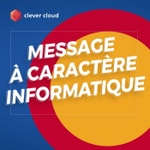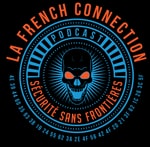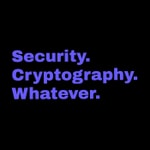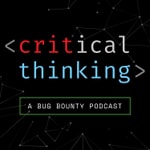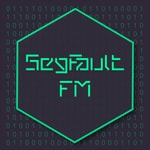Cryptography FM – Details, episodes & analysis
Podcast details
Technical and general information from the podcast's RSS feed.
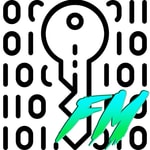
Cryptography FM
Symbolic Software
Frequency: 1 episode/38d. Total Eps: 24

Recent rankings
Latest chart positions across Apple Podcasts and Spotify rankings.
Apple Podcasts
🇨🇦 Canada - mathematics
05/08/2025#54🇬🇧 Great Britain - mathematics
05/08/2025#41🇩🇪 Germany - mathematics
05/08/2025#33🇺🇸 USA - mathematics
05/08/2025#63🇨🇦 Canada - mathematics
04/08/2025#54🇬🇧 Great Britain - mathematics
04/08/2025#43🇩🇪 Germany - mathematics
04/08/2025#30🇺🇸 USA - mathematics
04/08/2025#58🇨🇦 Canada - mathematics
03/08/2025#54🇬🇧 Great Britain - mathematics
03/08/2025#43
Spotify
No recent rankings available
Shared links between episodes and podcasts
Links found in episode descriptions and other podcasts that share them.
See all- https://breakingthe3ma.app/
4 shares
RSS feed quality and score
Technical evaluation of the podcast's RSS feed quality and structure.
See allScore global : 59%
Publication history
Monthly episode publishing history over the past years.
Episode 24: CryptoHack's Collection of Cryptic Conundrums!
Episode 24
lundi 27 février 2023 • Duration 49:18
Episode 23: Psychic Signatures in Java!
Episode 23
mercredi 25 janvier 2023 • Duration 53:20
Episode 14: Schnorr, Factoring and Lattices!
Episode 14
mardi 30 mars 2021 • Duration 46:30
Episode 13: Zero-Knowledge STARKs in the Real World!
Episode 13
dimanche 14 mars 2021 • Duration 47:00
Episode 12: Special Real World Crypto 2021 Pre-Conference Coverage!
Episode 12
jeudi 7 janvier 2021 • Duration 01:37:46
Episode 11: Breaking the Rainbow Post-Quantum Cryptography Candidate!
Episode 11
mardi 8 décembre 2020 • Duration 38:08
Episode 10: Exploiting Authenticated Encryption Key Commitment!
Episode 10
mardi 1 décembre 2020 • Duration 46:34
Episode 9: Off-the-Record Messaging and PKI Implementations!
Episode 9
vendredi 20 novembre 2020 • Duration 41:41
Episode 8: Breaking Elliptic-Curve Signatures With LadderLeak!
Episode 8
mardi 17 novembre 2020 • Duration 42:29
Episode 7: Scaling Up Secure Messaging to Large Groups With MLS!
Episode 7
mardi 10 novembre 2020 • Duration 45:10
